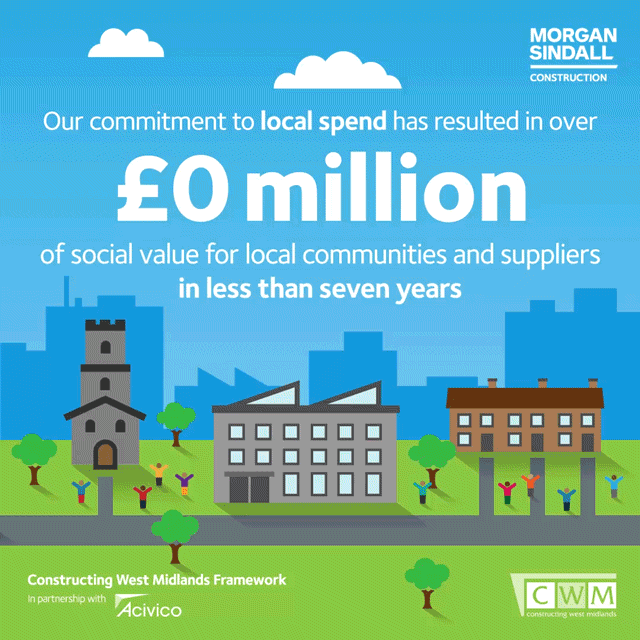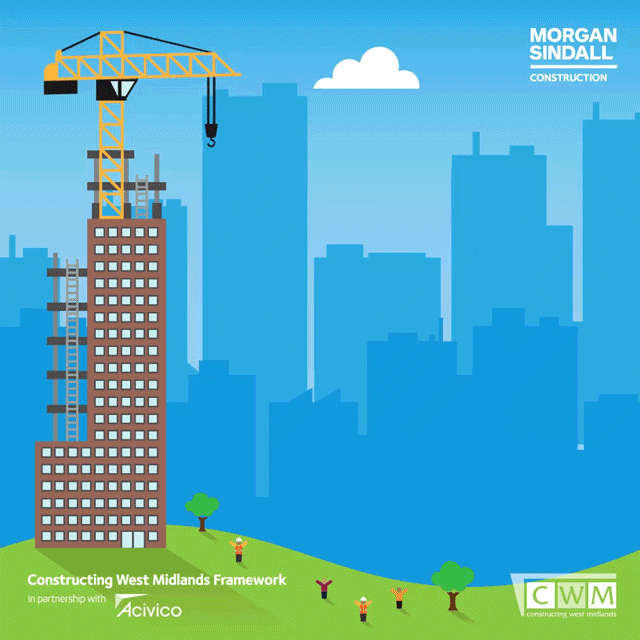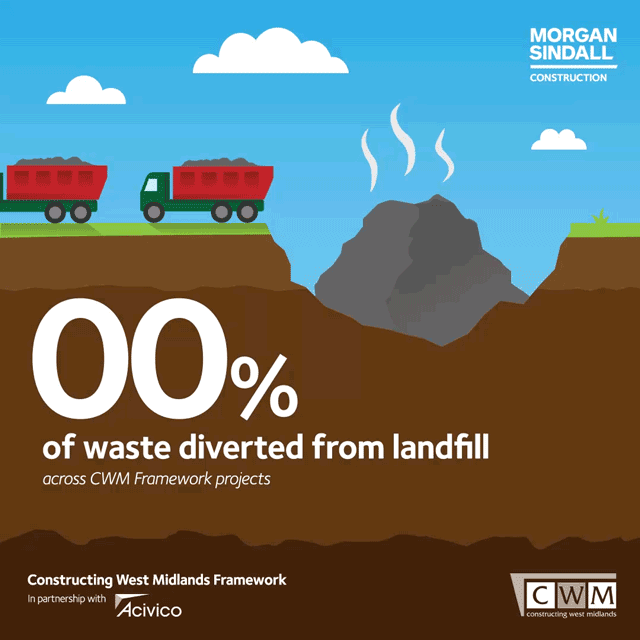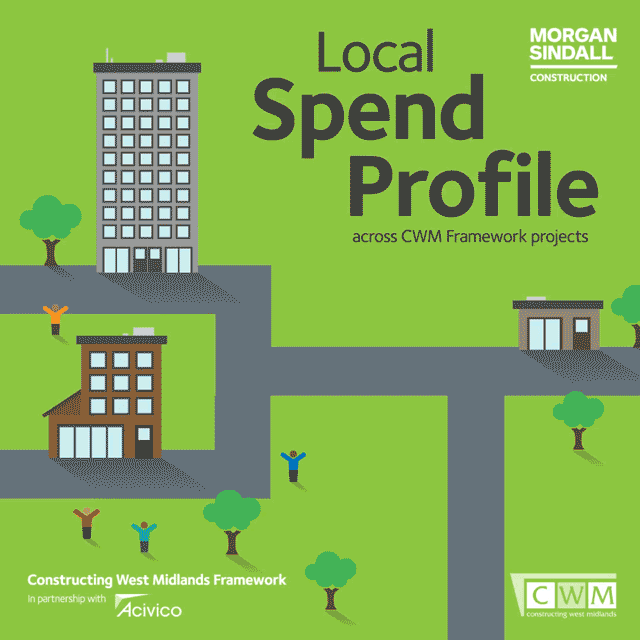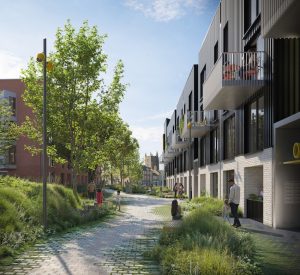Constructing a framework for inclusive growth in the West Midlands

Local authorities have been contending with austerity for a decade. They have lost almost 60 pence in every pound of funding from central government during this time. The pressure this has placed on their budgets has led to cuts in services: adult social care, children’s services and homelessness support, to name a few, says Dave Kelly, Framework Manager, Morgan Sindall Construction.
With crucial front line provisions rightly-prioritised, council leaders have been forced to make savings where they can. The most forward-thinking amongst them have been quick to realise that shrewd deployment of the purchasing power they do have can net additional benefits for local communities.
Nationally, this push has fallen under the umbrella of the Social Value Act which came into force in 2013; obliging procuring officials to consider the social, economic and environmental benefits a purchase might deliver.
In the West Midlands, however, the same approach has been bearing fruit for even longer.
The Constructing West Midlands framework was established in 2011 with the aim of streamlining the procurement and delivery of capital building, repairs and maintenance projects for public sector organisations across the region.
More benefit for local communities
In addition to the cost-savings in design and construction, it provides assurances to organisations using it that their development pound will deliver additional benefit for local businesses and local people.
Morgan Sindall Group companies have been key suppliers on the framework since its inception. At Morgan Sindall Construction, we’ve worked with Acivico – the consultancy which manages the framework – to deliver the social infrastructure that people depend on.
These are the education, healthcare and leisure facilities on which stable, prosperous communities are built.
100% on time and budget
We have successfully completed 42 projects worth a combined £231 million through the framework. Crucially, 100 per cent of these have been to budget and 97 per cent have been handed over on time. When the industry averages are 59 per cent and 66 per cent respectively, that in itself is no small feat.
But, unquestionably, the greatest impact has been from the wider social value our construction work has elicited. Using an established methodology called Local Multiplier 3 (LM3) we can calculate the economic impact we make within the region through post code monitoring.
Currently, our total on the Constructing West Midlands framework stands at £580 million – more than double the development outlay.
Keeping SMEs at the heart of delivery
The lion’s share of this, some £516 million, comprises spend routed through small and medium-sized local businesses in the supply chain; the lifeblood of communities.
Investment in more than 8,000 weeks of training and development initiatives with partner organisations, including the Construction Youth Trust and Jobcentre Plus, makes up the balance.
Equipping young people – especially those from disadvantaged backgrounds – with the skills to build careers, while simultaneously ensuring there are thriving SMEs to offer them employment, are both fundamental steps to achieving inclusive growth.
A legacy beyond local authority
The legacy of successful local authority projects delivered through the Constructing West Midlands framework has not been lost on other organisations.
It is increasingly being used for development in the higher education sector. The 34,000 square foot business school connected to the Grade II-listed University House, which we have just built for the University of Birmingham, is a case in point.
The university procured their £24 million flagship development using the framework, that ensured 80 per cent of the contract value was pumped back into West Midlands businesses within 60 miles of its Edgebaston campus.
Furthermore, the framework’s requirements and our own standards, ensured that the project achieved a 99 per cent diversion from landfill.
Prioritising social value
Gratifyingly, the trend of progressive organisations prioritising social value, is increasing.
In addition, having worked through the Constructing West Midlands framework for the best part of a decade, the majority of our supply chain in the region is local by default. As such, the framework’s influence extends even to private sector projects delivered outside of its auspices.
The socioeconomic challenges facing the West Midlands are many and nuanced. Unemployment is still higher than the national average and an estimated one pound in every five spent on public services is linked to poverty.
Smarter working within the built environment will not solve this in isolation. But, judging by the successful legacy left by the Constructing West Midlands framework over the last decade, it can undoubtedly be part of the solution.
Download a copy of the Constructing West Midlands infographic here.

